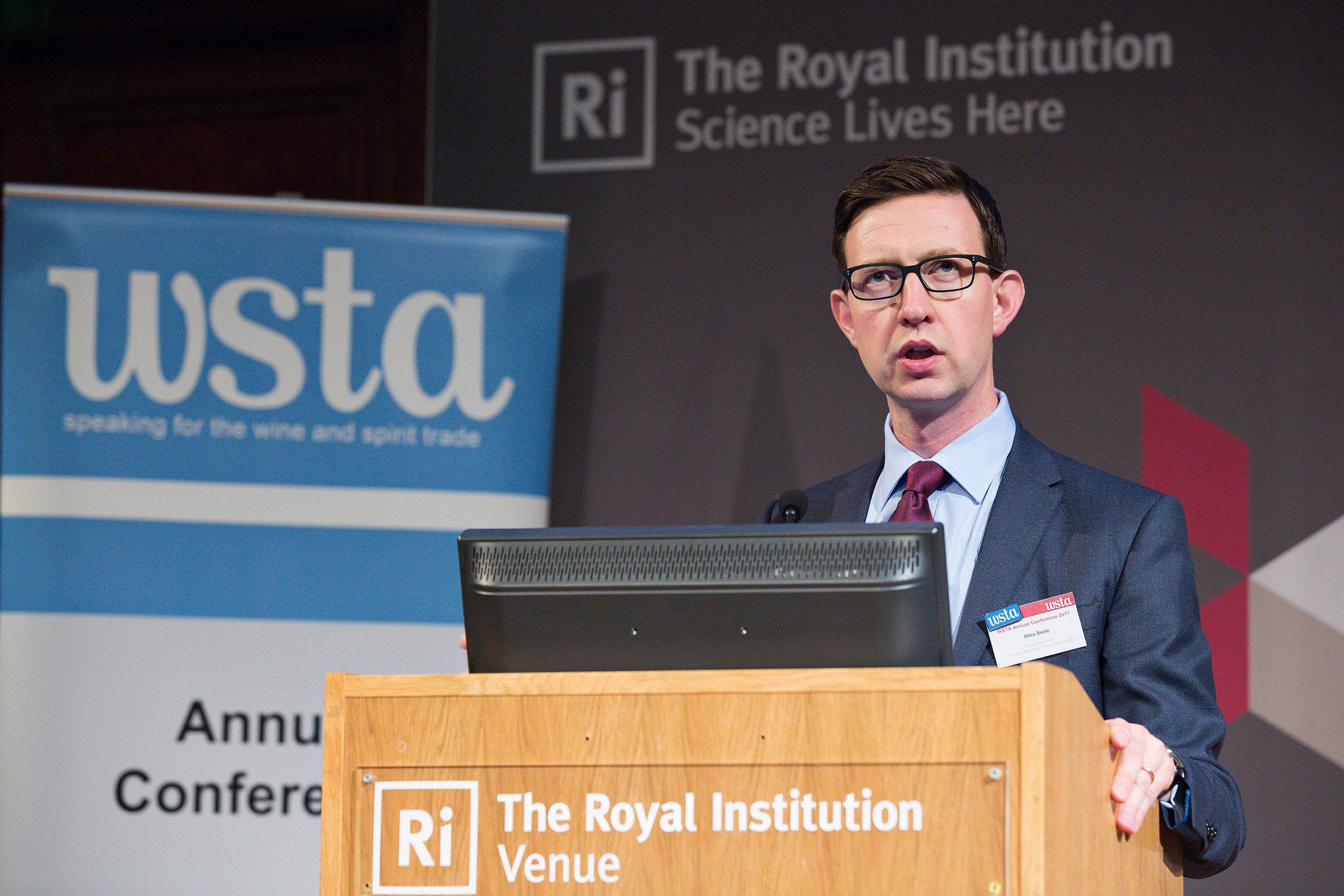There really was only one subject on everyone’s lips at the Wine & Spirit Trade Association conference –Brexit. Helen Arnold was in the front row to hear some strong words for the government, and how the drinks industry can best rise up to face the unprecedented challenges ahead.
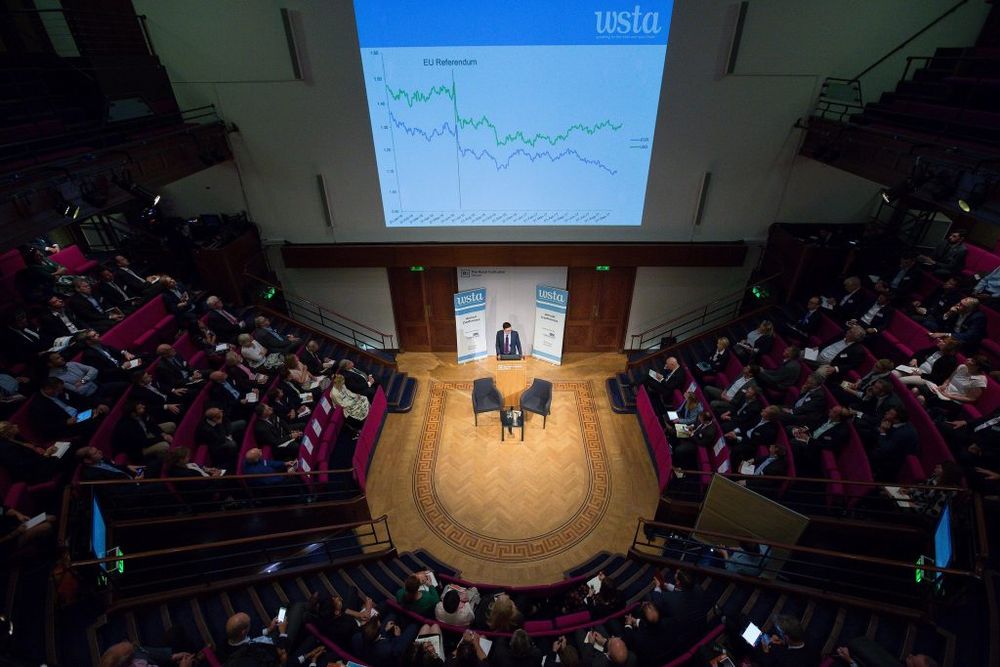
Setting the scene for the drinks industry at the WSTA conference.
There is no sugar coating when it comes to Brexit. Regardless of how you might have voted personally the consequences of the UK leaving the European Union are going to see unprecedented levels of change and upheaval and, depending on where you sit in the debate, anything from disastrous consequences for the UK drinks industry or a rallying cry for free trade.
The mood at this week’s WSTA conference was very much more on the disastrous side of the fence. The association’s Miles Beale kicked off proceedings in no uncertain terms. He warned that a breakdown in talks on Brexit without agreeing the UK’s future trading relationships or without a transition period would be “nothing short of a disaster”.
It would result in “significant disturbances to the movement of goods to and from Europe, supply chains being disrupted and prices would inevitably rise, he claimed.
He was also critical of the lack of progress in the negotiations so far. “There’s been too little progress and too much posturing – from both sides,” he said.
With only 18 months until the two year Article 50 deadline expires, “the clock is ticking” he said, pointing out that if the UK is to have a negotiated agreement when the UK leaves the EU, then there’s even less time to conclude the discussions.
“Given that the final deal will have to be endorsed by the European Parliament and will also have to be ratified by a number of national parliaments, it will have to be close to being finalised this time next year. And for those of us with experience of working with the EU institutions 12 months isn’t a long time.”
Under appreciated and over-taxed
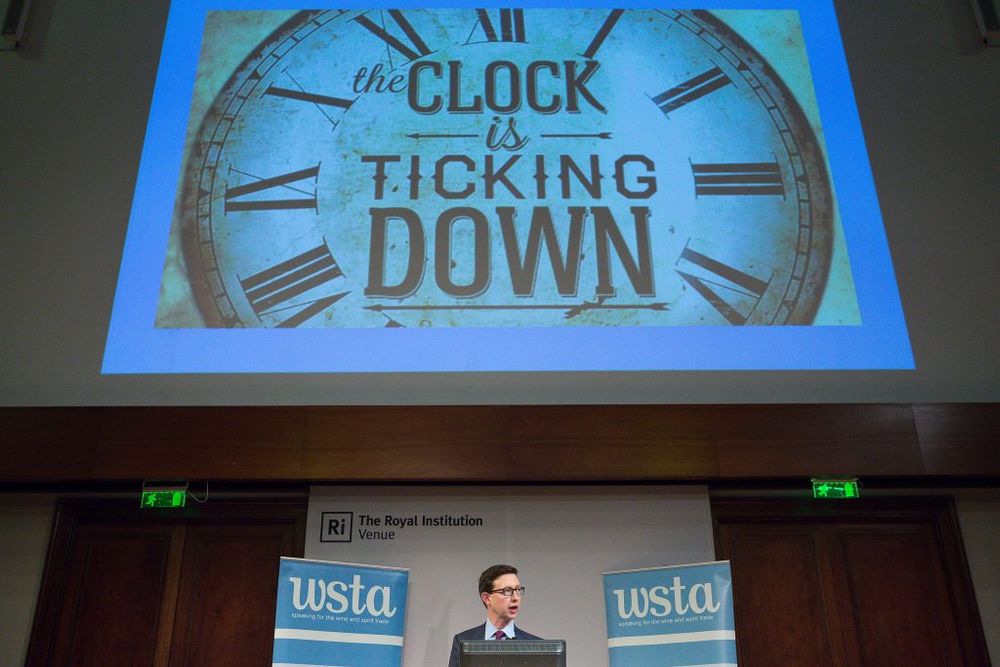
It seems we are in a very real version of Channel 4’s Countdown as the Brexit talks count down to March 2019
He said the situation for the drinks industry was even more acute as it is already “under appreciated and over-taxed” by a government that seems intent on ignoring the huge benefits the industry brings to the UK economy, whether it is in the EU or not. Despite alcoholic drinks occupying four of the top seven food and drink exports, this was largely ignored by government, said Beale, arguing that it needed to do more, in light of Brexit and the pressing need to negotiate a successful settlement with the EU.
He added: “It’s all too easy to see how a bungled Brexit would preclude any chance of taking advantage of the more distant opportunities of enhanced international free trade.Above all we cannot stand and watch this industry going from being under-appreciated by government to being undermined by government.”
The Brexit negotiations were “unprecedented” he added, and “it is not business as usual. Failure – no deal – is neither a goal nor an acceptable outcome.”
Beale called for a transition period during which the UK would remain within the customs union and internal market, denying this was in any way a “half way house”, but a “necessary first step” to provide stability and certainty to business, including the drinks sector.
Bungled Brexit
He urged the government to do more, and to act on the WSTA’s information and advice. “The UK government is in an unprecedented negotiation. It holds few cards, little leverage, has reduced authority, a wafer thin Parliamentary majority and no control of the negotiating position. Business needs more clarity, government more support.”
He pointed out that each year €2.5bn worth of wine crossed the channel, and €2.7bn of wine and spirits go the other way, so the case for the mutual benefit of trade is plain.
“And if you look only at spirits, you are missing half the story. The UK market’s importance to French, Italian and Spanish winemakers is as significant as the leverage that this provides.”
Failed Brexit

EU lawyer Miriam Gonzàlez Duràntez feared it is near on “impossible” for the Brexit talks to succeed in their current form
Despite Beale’s rallying call, Miriam González Durántez, lawyer and partner at international legal practice Dechert,poured cold water on the idea that an agreement will be reached in time. She said it was “extremely unlikely” that the UK will have negotiated a satisfactory deal with the EU before the Brexit deadline of March 19 2019.
“It’s clear we are not going to have a fully fledged agreement by 2019,” she said. “That is impossible. People cannot believe how slow it is, where is the progress?”
She also confirmed that technically, Brexit could be reversed, however unlikely that may be.
While Brexit currently dominates all political and business talk in the UK, Gonzalez pointed out that other EU countries are less concerned. “Balancing the north/south Eurozone divide is much more important for France and Germany than Brexit,” she said.
The best outcome for the UK and for business, she said, was to prolong Article 50 and stay within the EU for as long as is necessary to ensure that the UK gets the deal it wants.
Her biggest concern, however, was the growing lack of trust between the UK and the EU. “Without trust, we cannot do business. We still do not have a plan, so lack of trust must be eradicated.”
Long process
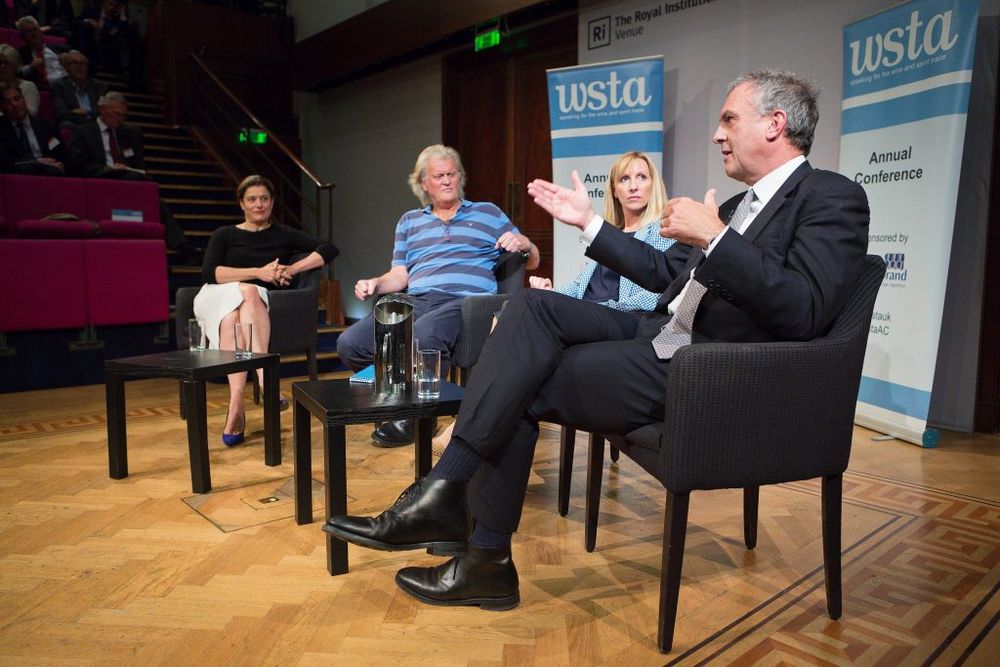
Former civil servant chief Sir Simon Fraser, near, told the WSTA that the government’s negotiations to date have been poor
Former head of the Foreign Office and managing partner at Flint Global, Sir Simon Fraser, agreed. “Brexit is not at the top of preoccupations for the EU,” he said, though he pointed out that both sides do want a transitional arrangement. Negotiations, he claimed, would likely become more serious when the German elections are over and a new coalition is formed, though admitted that things had not got off to a flying start. “They have not begun particularly well,” he conceded.“Let’s face it, we didn’t have a plan.”
“The focus on transition, however is a bit of a red herring. The question is, what do you get at the end of the transition?”
He referred to the negotiations with the EU as a “huge task”, not helped by the fact that as a country we lack the necessary negotiating experience. “We need to build up those skills,’ he said. “It will be a long process.”
In for a ‘bumpy’ ride
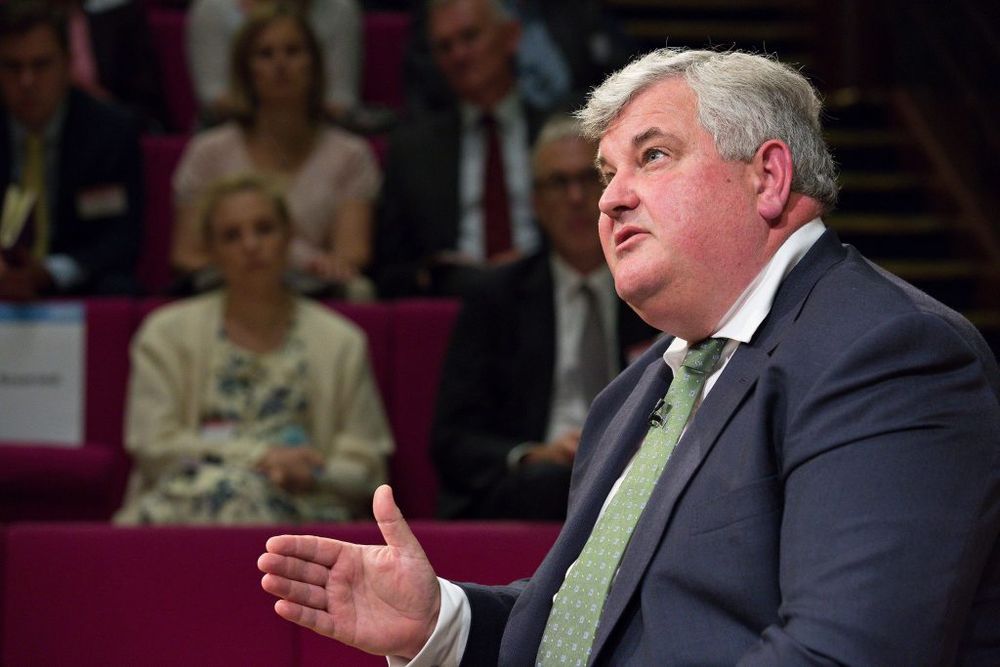
We’re all in for a “bumpy” ride for at least the next 10 years warned former government minister, Lord Price
Another speaker at the conference was former Waitrose managing director and trade minister Lord Price, who only stepped down from his government role a fortnight ago. He conceded that the 10 years following Brexit would be “bumpy” for the UK, but nonetheless he remainedbullish about the country’s future prospects.
“The EU will have a competitive advantage for a long time after Brexit,” he said, going on to warn that Brexit would not solve the day to day problems that led many people to vote to leave the EU in the first place – instead it will make them worse.
“Brexit is hugely important, it is the biggest task for us since World War 2.”
Before adding: “Can the EU do a free trade deal with EU? Of course, but in reality its going to be very challenging.
“But I don’t understand the terms hard and soft Brexit. You are either in the EU or you aren’t. There are two economically literate positions – we stay in as we are today or leave and we properly leave. I think business should meet the competitive world full on. What I don’t think is an optimal solution is a soft brexit.”
Pro-Brexit
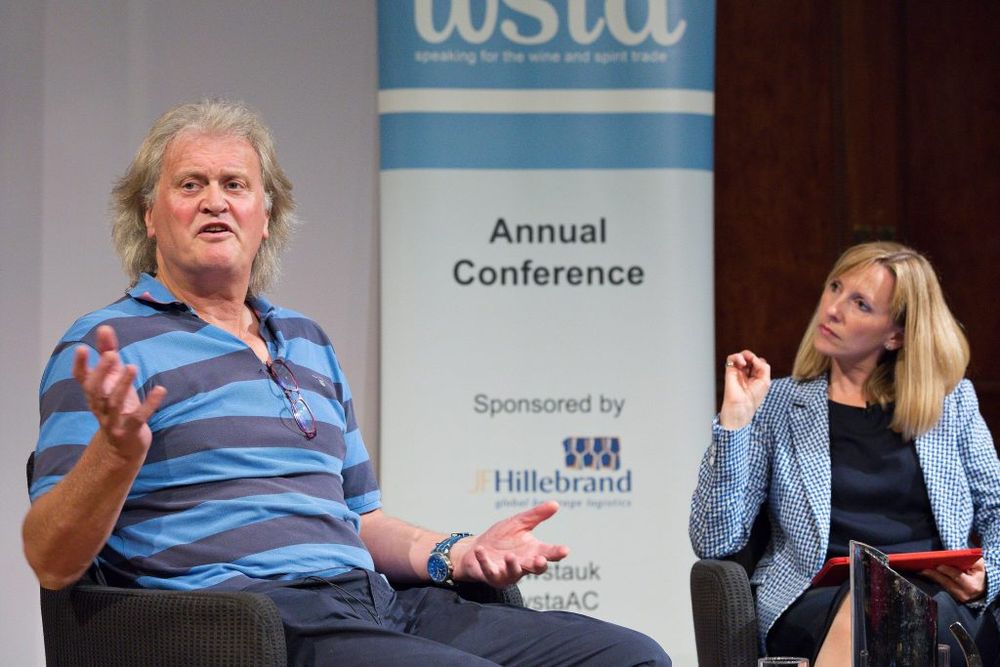
Brexit holds no fears for Wetherspoons chief, Tim Martin, but he would like to see steps taken to help employment and access to workers
Tim Martin, the outspoken boss of pub chain Wetherspoons, and well known for his pro-Brexit views brought the debate back to basics. He said it essentially boiled down to whether you want a free trade deal of not.
“Abolish all tariffs – just do it,” he said. “We sell more wine than any other pub company. But we don’t buy it from the EU, we source from the New World.” And he claimed there “definitely” isn’t a need for a long term trade deal with the EU. “We trade with the US, but have no Free Trade Agreement there,” he pointed out. “We trade with 93% of the world without a FTA.”
He conceded that immigration was necessary – and not just because he needed bar staff – but it should be “dramatically curtailed” as it is in other countries, pointing out that one in 10 of his staff came from outside the EU.
He added out that the price differential between alcohol in pubs and supermarkets is too much for the less well off population, and this is helping to kill off the pub trade.
Strategic plan
The WSTA launched its new five year plan at the conference, underlining its key goals up until 2022. Its four main pillars include: greater collaboration with partners across the industry and in government; working for regulation and taxation that is appropriate and fit for purpose; and future proofing its commitment to an even more socially responsible industry.
As part of this, it has updated its labelling advice in partnership with the Portman Group, and boosted its online resources on worldwide alcohol guidelines and calorie content.
“This is significant,” said Beale. “It goes further than we were asked to go, supports the UK and EU top public health priority of tackling obesity, while also recognising that adding endlessly to labels into a sustainable approach.”
7 facts to take from the WSTA conference
1 The UK drinks industry is worth an annual £50bn, supporting well over half a million jobs and generating £21bn in tax for the Chancellor’s coffers.
2 Gin is now the UK’s 7th most valuable food and drink export, above beef and cereal.
3 Wine is in sixth place, with exports worth nearly £500m in 2016. This is a combination of fine wine, UK bottled imported wine and home grown English still and sparkling wine.
4 Consumers in the UK pay 56% duty and VAT on the average bottle of wine, and 77% on spirits.
5 The drinks industry as a whole pays £4.2bn in wine duty and £3.3bn in spirits duty.
6 The government is planning on increasing this further, with a second duty hike this year in the Autumn Budget, and by 3% for every year in the lifetime of this parliament, adding a further £1.9m worth of costs to the industry annually.
7 The Institute of Government has said that Brexit without a transitional deal could land business with a £4bn a year customs bill.
